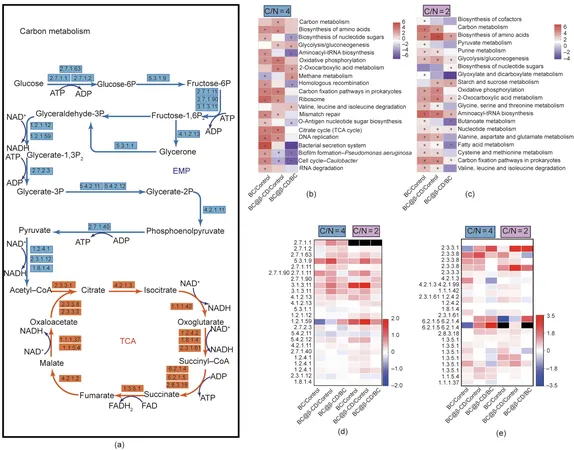
Major Concerns Emerge Over Newly Approved Alzheimer's Drug: Is Donanemab Safe?
2024-09-25
Introduction
The recent approval of donanemab, an Alzheimer's treatment by Eli Lilly, has triggered significant scrutiny regarding its safety and effectiveness, as revealed in a comprehensive investigation published by The BMJ.
Investigation Findings
Journalists Jeanne Lenzer and Shannon Brownlee have brought to light alarming concerns surrounding the drug's efficacy and potential dangers associated with its use. Their investigation has highlighted not only the tragic fatalities of some patients undergoing treatment with donanemab but also troubling financial connections between the so-called 'independent' advisors who backed the drug’s approval and the pharmaceutical industry.
Mechanism of Action
Donanemab is part of a pioneering category of anti-amyloid therapies that aim to combat Alzheimer's disease by targeting beta amyloid, a protein believed to contribute to the illness. However, the FDA initially rejected the drug's approval in January 2023, citing a concerningly “high rate” of missing data and posing serious questions about long-term safety.
Serious Concerns and Deaths
Notably, there was a higher incidence of treatment discontinuation among patients taking donanemab due to adverse events, including serious brain hemorrhage and swelling, as well as an alarming 'imbalance' in mortality rates compared to placebo groups.
The situation deepened when Eli Lilly acknowledged three deaths directly related to donanemab. An external company tasked with gathering previously missing data uncovered even more concerning findings, identifying two additional fatalities among the donanemab group and five in the placebo group. Yet, according to Steven Goodman, a clinical trial design expert at Stanford University, evaluating the credibility of this new data remains challenging without further information on the external company's methodologies.
Conflict of Interest
Compounding these issues, critics have pointed to a glaring conflict of interest among the FDA’s advisory panel. An investigation revealed that seven out of the eight doctors responsible for reviewing donanemab had received direct payments from various pharmaceutical companies, including Eli Lilly and Roche. This financial entanglement raises serious ethical questions about the impartiality of the panel’s recommendations.
The BMJ’s analysis, leveraging public databases such as OpenPayments, has unearthed that these advisory members have accumulated payments reaching up to $62,000 in consultancy fees and staggering research grants totaling up to $10.5 million from 2017 to 2023.
FDA's Response and Trial Design Changes
In response to inquiries about the extensive financial relationships of the advisory group, the FDA remained tight-lipped, stating, 'The FDA does not comment on matters related to individual members of an advisory committee.'
Additionally, significant changes were made to the trial’s primary outcomes, with key metrics being switched from the widely accepted 'clinical dementia rating scale—sum of boxes' (CDR-SB) to a proprietary rating scale developed by Lilly, which raises further concerns about transparency in the trial design.
Claims of Efficacy
Despite failing to demonstrate significant clinical benefits, Eli Lilly has claimed donanemab slows the progression of Alzheimer’s by 22%, and has also touted a 35% decline in symptoms, a statement criticized as misleading by experts like Alberto J. Espay, a neurologist from the University of Cincinnati, who argues that such figures can be deceptive.
Conclusion
The implications of these findings are profound. As families grapple with the devastation of Alzheimer’s, the safety and efficacy of treatments must be prioritized. With donanemab at the center of this debate, many are left wondering: Can we trust the emerging therapies for such a critical condition? Will regulatory bodies step up to ensure patients are not put at risk for the sake of profit? Only time will reveal the answers.









 Brasil (PT)
Brasil (PT)
 Canada (EN)
Canada (EN)
 Chile (ES)
Chile (ES)
 España (ES)
España (ES)
 France (FR)
France (FR)
 Hong Kong (EN)
Hong Kong (EN)
 Italia (IT)
Italia (IT)
 日本 (JA)
日本 (JA)
 Magyarország (HU)
Magyarország (HU)
 Norge (NO)
Norge (NO)
 Polska (PL)
Polska (PL)
 Schweiz (DE)
Schweiz (DE)
 Singapore (EN)
Singapore (EN)
 Sverige (SV)
Sverige (SV)
 Suomi (FI)
Suomi (FI)
 Türkiye (TR)
Türkiye (TR)